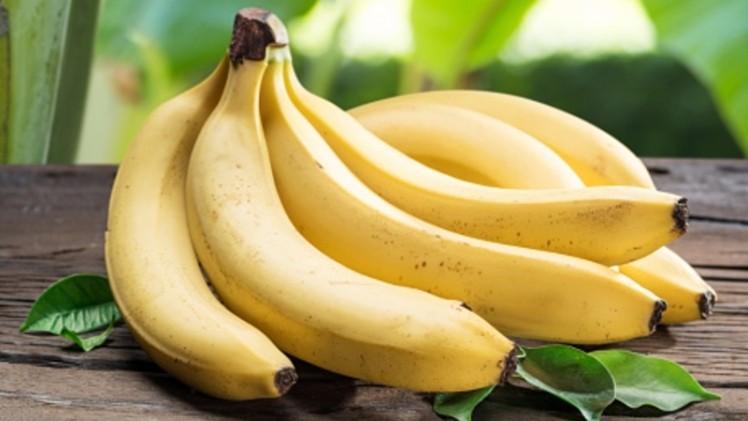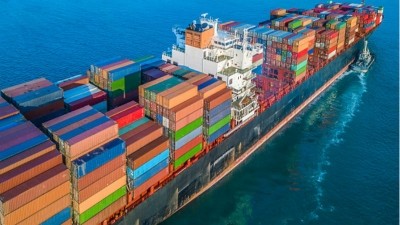Banana drama: ‘Pirated’ products and tariff tribulations puts Philippines’ top agri export at risk

Bananas are the country’s top agricultural export, according to the Philippines Banana Growers and Exporters Association (PBGEA), particularly Cavendish bananas. In 2019, the banana export market brought in US$1.9bn worth of revenue for the country.
“Some of the biggest consumers of imported bananas in the world, which are normally Cavendish bananas, are in China, Japan and South Korea – and bananas from the Philippines make up an average of 85% of the bananas imported by these three countries,” PBGEA Chairman Alberto Bacani told FoodNavigator-Asia.
“Other closer countries like Indonesia and Malaysia grow their own local varieties and don’t normally import Cavendish bananas, but in those top three countries I’d estimate we make up some 93% of banana imports in Japan, around 80% in China and around 80% in South Korea.”
That said, this market domination has seen increasingly severe threat over the past decade, particularly in South Korea where a Free Trade Agreement (FTA) with Central America has culminated in import tariffs for bananas from the region being reduced to zero this year.
“Philippines bananas are still subject to a 30% tariff when entering South Korea, so you can imagine how that, in addition to Cost Net Freight (CNF) costs are hitting our exports there,” said Bacani, who is also the CEO of the country’s third largest fruit firm Unifrutti.
“At the moment we’re still holding up because we have a distance advantage – bananas from here to Korea take five days to reach, but from Central America to Korea take 30 days, so freshness and quality reliability are still on our side – but over the past 10 years they have already managed to increase their market share in Korea from 5% to 30%, so ours has reduced from 95% to 70%, and this is concerning.”
PBGEA is currently lobbying with the government to help with the tariff issue and strike Philippines’ own FTA with South Korea, but nothing has yet been agreed on even after months of talks between the two countries from August to December last year.
“They could not reach an agreement on zero tariffs for bananas as South Korea wanted a reduction for cars and car parts which Philippines could not agree on, and then COVID-19 hit,” he said.
“The Department of Trade and Industry (DTI) has told us that they hope to continue negotiations in August and reach an agreement before the end of the year. We will continue to lobby for this.”
A similar situation is also unfolding in Japan, though to a much smaller extent as PBGEA sees less tariff disadvantage compared to its competitors.
“Our main competition in Japan is from Ecuador, but we are more comfortable there and feel less disadvantage as we are subject to the same tariffs, which are 8% in high season and 18% in low season,” Bacani added.
“That said, we are also lobbying the government to reduce tariffs for this too, as looking at the situation in South Korea, you really never know what could happen or what we would do if another FTA lands.”
Banana piracy
In addition to tariff woes, the Philippines banana industry is also facing threat from ‘pirated’ bananas in and around China.
“When I say ‘pirated’, I’m referring to how China has started to invest a lot of money in growing Cavendish bananas in its four surrounding countries, and is ‘pirating’ Philippines’ hard-developed 60-odd year banana growing technology and expertise by bringing in Filipinos and paying them high wages to teach this to locals,” said Bacani.
The four countries in questions are Vietnam, Cambodia, Laos and Myanmar, which China has chosen due to their close proximity and high numbers of people willing to farm for a living.
China itself is actually the biggest producer of Cavendish bananas in the world, though none of this is exported due to high local consumption. Local Chinese banana plantations have suffered huge losses in recent months due to a currently-incurable fungus causing the Panama disease as well as a lack of farming manpower, and these ‘pirated’ bananas are expected to plug the hole for local production.
As such, the fear for the Philippines is less about these encroaching on export market share, but more of the outflow of expertise and knowledge, and the eventual consequences of this.
“There isn’t very much we can do about this as we don’t want to obstruct people’s livelihoods – some can get paid triple the salary they can get here – but it is definitely a cause for concern for the industry,” said Bacani.
“Right now, we still have an advantage over these bananas as they are inferior in terms of look and taste, but in five or so years, I believe they will be able to learn how to do it right and reach Philippines’ levels. We still hope that this will only have marginal impacts on the export market share due to the high consumption levels in China.
“[The best way to keep Philippines bananas top-of-mind], whether in China or other countries, is to promote this as an industry like Ecuador does - so we’re asking the government to consider a promotional campaign of sorts to promote the industry as a whole.
“So when we go to trade shows or anywhere, not promoting as Dole, Del Monte, or Unifrutti bananas - but as Philippines bananas, ‘the highest quality’, or the ‘happy banana’ or something like that.”
Other challenges
The Philippines has also battling the same Panama disease in recent years, with Bacani deeming it ‘similar to COVID-19 in bananas’ as quarantines, foot baths, disinfection and similar measures are also required to stop its spread.
“The Panama diseases fungus spreads fast and easily as it is soil-borne – even if someone steps in it in one farm and walks to another farm, just like that it will spread. What happens then is we have to ‘lockdown’ the infected farm, and practise foot baths and so on, similar to COVID-19,” he said.
“We’ve lost some 25% of the original banana acreage we had over the past seven or eight years, from 85,000 hectares to around 65,000 hectares. A recent new Cavendish banana variety tolerant to the diseases has been developed, such that maybe just 5% would be lost if a farm is infected – but this is still being tested.”
Water shortages have also emerged as a significant problem for the industry due to climate change and large-scale deforestation in mountaineous areas, leaving less tress to trap water and as such less water supply in rivers and underground aquifers for banana trees to access.
“Everyone always talks about Panama disease when talking about banana problems, but the lack of water is actually one of the most serious ones yet no one is talking about it,” said Bacani.
“We also want the Philippines government to know they need to help implement massive reforestation to help all agricultural crops, including bananas, that need water – I’m not just talking planting a few trees and taking pictures then forgetting it, but real projects to help the trees thrive and become big and trap water. That’s what we need."

















